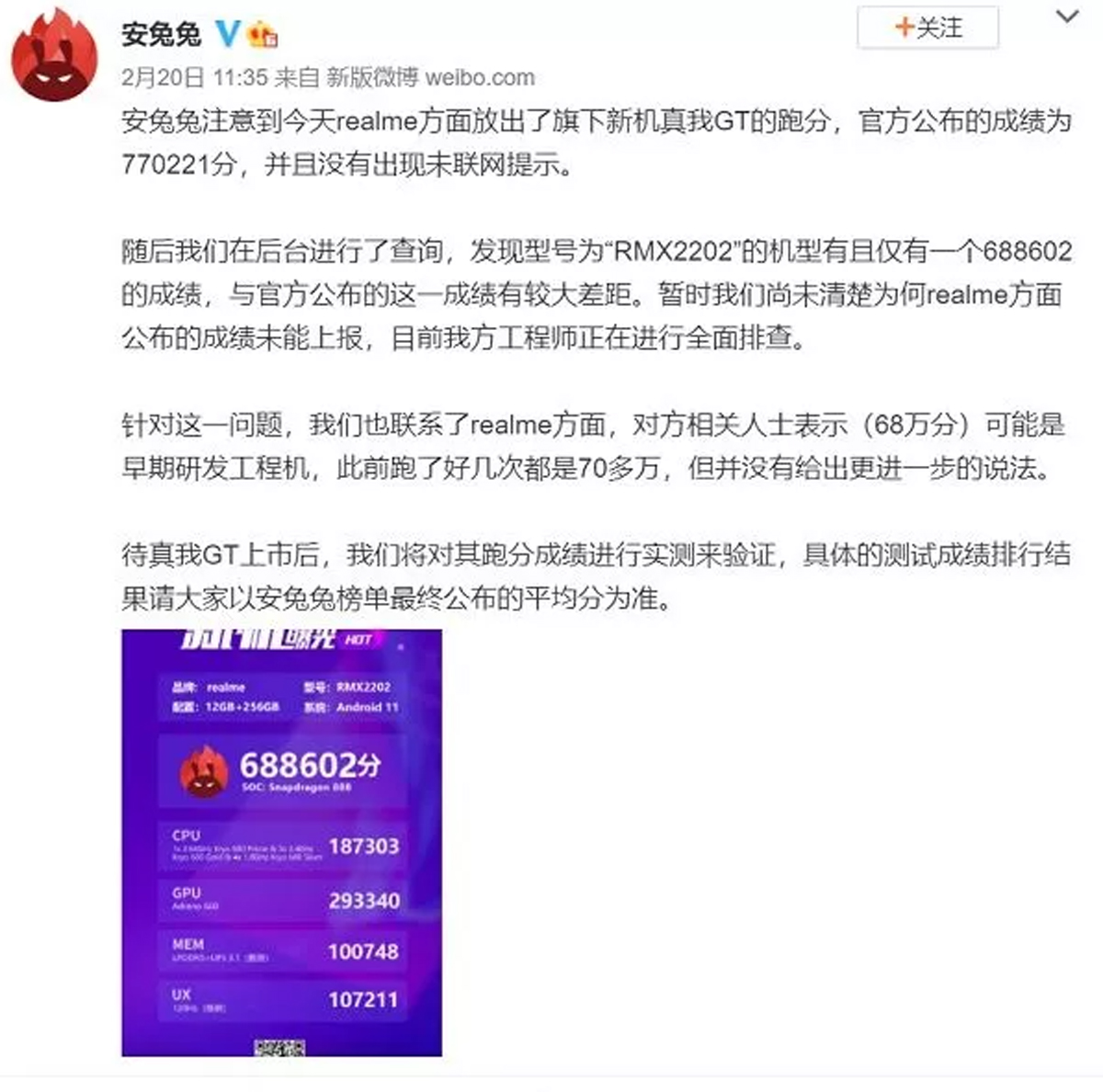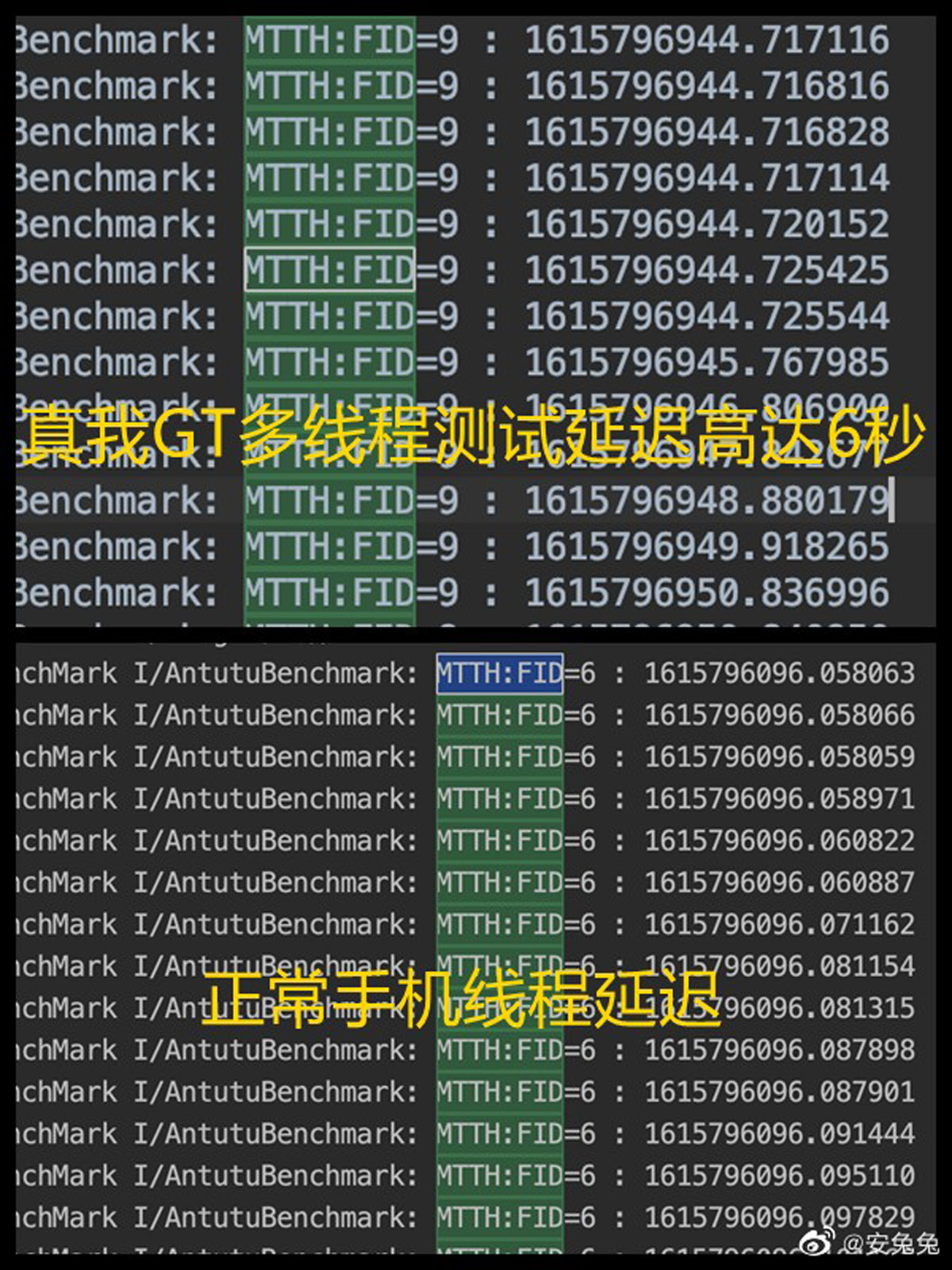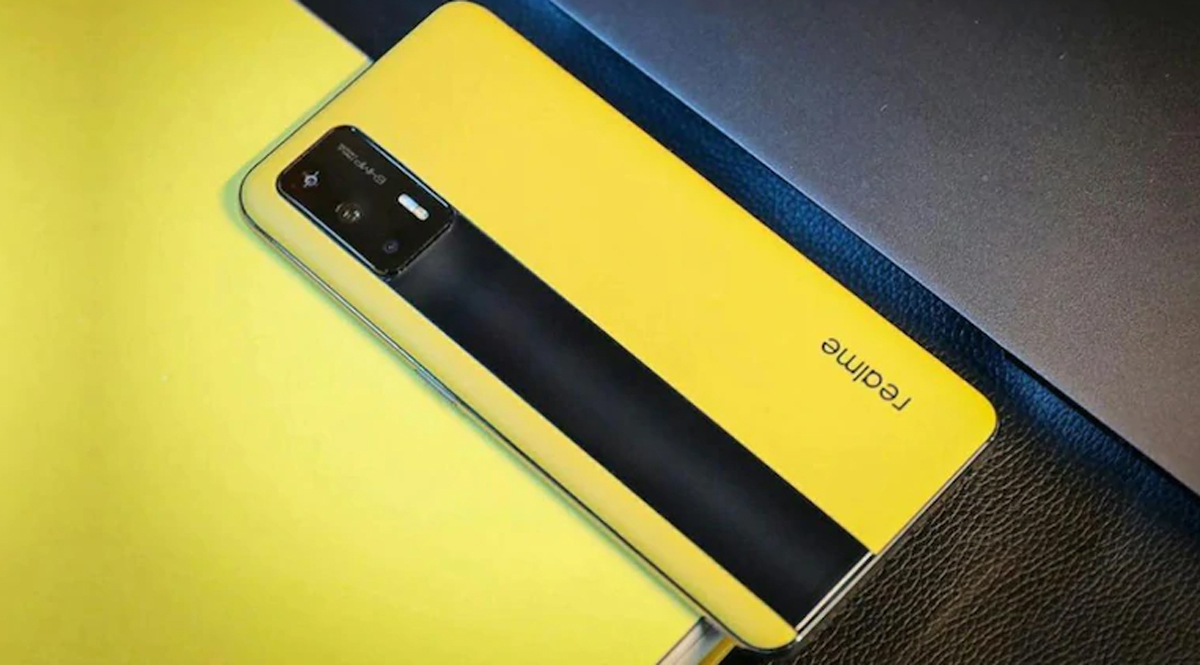AnTuTu has called out Realme for cheating on its benchmarking platform. It alleged that the brand had used deceptive measures during testing in order to rake in a high score for its latest Snapdragon 888-equipped flagship smartphone, the Realme GT.
In late February, brand vice president Xu Qi Chase shared a screenshot of the GT’s AnTuTu benchmark results on Weibo, revealing an impressive score of around 770,000 points. This placed it ahead of another Snapdragon 888 device, Xiaomi’s recently launched Mi 11 flagship, which scored around 708,000 points.
However, AnTuTu themselves were skeptical of the Realme GT’s overachieving score and decided to conduct the test on their own. The platform then took to Weibo to announce that the phone scored only 688,602 points – around 80,000 points less than what was claimed by the smartphone brand.

The platform explained the Realme GT used thread delay tactics during the multi-core test, which enabled it to hold back some threads that were meant to run on the smaller CPU cores and rerouted them to run on the larger and powerful cores instead. In the UX test, the smartphone was discovered to have skipped much of the processing involved with JPG decompression by relying on mosaic colour blocks to reduce the quality of an image. Both of these methods allowed for faster processing times, which in turn rewarded the GT with more points from the benchmark.

Consequently, AnTuTu has banned the Realme flagship from its platform for a period of three months due to cheating – removing its listing and score, as well as preventing any future tests involving the GT from taking place. It also issued an ultimatum to the brand, demanding Realme to address the issue within the given time frame or risk having the phone permanently banned.

Responding to the allegation, Xu Qi Chase issued a statement on Weibo saying that no tampering has been done to the particular Realme GT unit that was used for the benchmark. In the meantime, brand correspondents also told several outlets that it is currently communicating with AnTuTu in order to resolve the problem.
Cheating on mobile benchmarks is nothing new. Smartphone brands such as OnePlus and even chip manufacturers such as MediaTek have been previously caught tweaking their products in order to get higher scores. These numbers play an important role in terms of marketing and bragging rights, especially when comparing performance results with the competition.
Follow us on Instagram, Facebook, Twitter or Telegram for more updates and breaking news.



